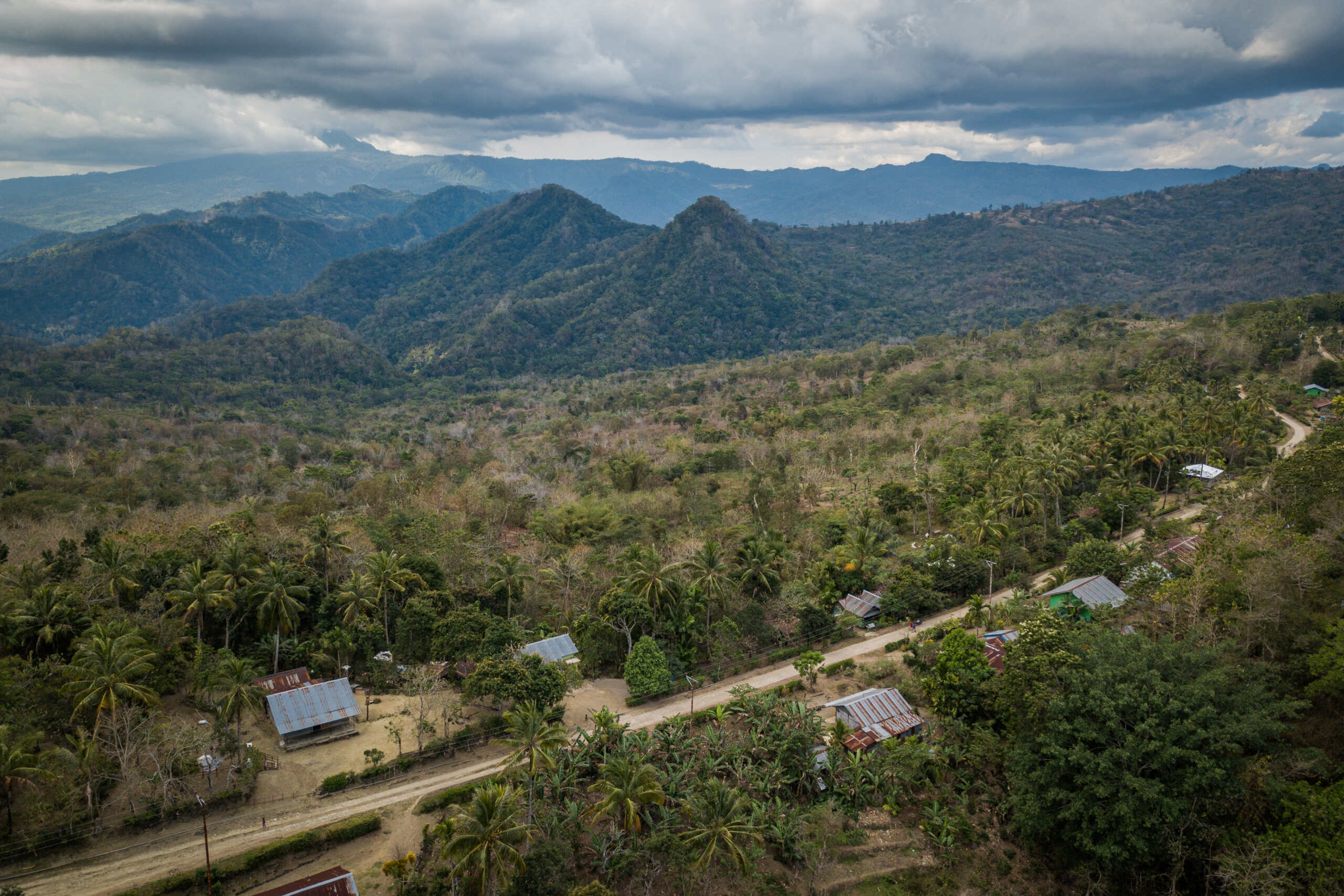Disability-inclusive disaster risk reduction in the Solomon Islands: Ellena’s story
Pacific, Stories | June 25, 2024
The word “tropical” often conjures images of sunny skies and sandy beaches along a palm-fringed coastline. While undoubtedly idyllic, life in the tropics can also bring wild weather.
The Solomon Islands’ cyclone season lasts half the year, creating flooding and landslides. Located east of Papua New Guinea, this archipelago nation lies within a region so volatile it’s been dubbed the ‘Ring of Fire’, subject to frequent earthquakes, tsunamis and volcanic activity.
“I’ve experienced a lot of natural disasters,” admits 23-year-old Ellena. “Disaster doesn’t just affect able people; it affects all people. So, they all have the right to safety.”
Being a right-leg amputee from birth, walking has always been difficult for Ellena, even while holding a crutch. In her childhood village, flooding was common, so the family – her parents and six siblings – would have to move to higher ground. “We’d have to get to safety in time,” she recalls.
Ellena’s compromised mobility meant she often feared for her own safety during these already stressful events. “If I lost my crutch, I couldn’t walk. How would I survive that?”
Previously, these communities never prepared for disaster, so there would be panic as people rushed to escape. “Older people and people with disabilities needed to be carried, but the other people didn’t do that. They left them.”
Not everyone who is abandoned during a disaster event survives, and those who do can remain traumatised, Ellena points out. “They have these terrible thoughts; ‘Why did they leave me like that? Am I not important?’”
The Australian Humanitarian Partnership’s Pacific Disaster Ready program, with help from CBM Australia, is changing this. “I was really excited,” says Ellena on learning of this disability-inclusive disaster risk reduction program. “When people understand the perspectives of people with disability, they make positive changes.”
Ellena, who works for People with Disability Solomon Islands (PWDSI), adds: “I was happy to share my views on what is challenging for people with disabilities; how we can improve accessibility and help them participate in the program so they can also share their views.”
By giving those directly affected a voice, CBM Australia, with Australian government funding, has been working with PWDSI and the Pacific Disability Forum to educate local communities about including the most vulnerable in their planning for disaster events.
“These workshops, training and other awareness-raising initiatives means communities can know what to do before any disaster strikes and how to prioritise these other groups,” says Ellena about people with disabilities, the elderly and pregnant women.
She says the Pacific Disaster Ready program not only gave her more information on how to prepare for disaster but inspired her to start having different conversations; with her family, developing their own plans for the next cyclone season; and her community more broadly, encouraging them to think about building accessible evacuation centres, seeding far-reaching change.
“Her knowledge and contribution will have such an impact in the community she lives in,” says PWDSI’s disaster risk reduction officer Naomi.
Ellena is now a life-long advocate for disability-inclusive disaster risk reduction, continuing to “raise the voice of people with disabilities so that more people can understand what they need to do to help.”
The Disaster Ready program is supported by the Australian Government through the Australian Humanitarian Partnership (AHP).
https://www.cbm.org.au/stories/disability-inclusive-disaster-risk-reduction-solomon-islands-ellena-story
Related Stories

Week 3 – Lent series 2026
This week, we’re reflecting with our colleague Christian, Supporter Relationship Specialist at CBM Australia, who turns to John 13:34–35 (NIV): “A new command I give...

Week 2 – Lent series 2026
As we continue our Lent journey, we’re grateful to share a heartfelt reflection from CBM Australia’s Head of Program Impact Operations, Kieran Cummins, who...

Building inclusive, climate resilient communities in Bangladesh
Highlights from DFAT Post’s visit In January 2026, representatives from the Australian High Commission in...
